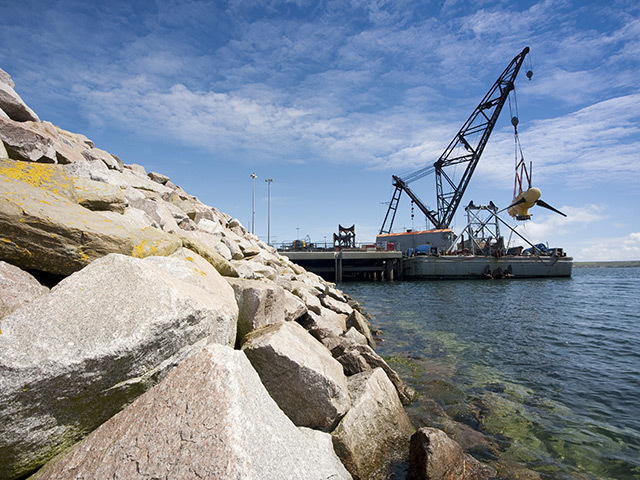
Construction of the largest planned tidal energy project in the world is expected to begin off the Scottish coast next month, developers have announced.
Atlantis, majority owner of the MeyGen project, said it has finalised all of the conditions required to initiate its first drawdown from financiers The Crown Estate and Scottish Enterprise.
The project has the potential to power nearly 175,000 homes through a network of 269 turbines on the seabed at Ness of Quoys in Caithness.
The company’s share price dipped yesterday but Atlantis said it “knows of no trading or operational reason to warrant this change”, particularly given the good progress it is making on MeyGen.
In an announcement to investors, Atlantis said: “The major construction and supply contractors to this iconic project have commenced design, engineering and procurement works in readiness for commencement of onshore construction at the project site in Caithness in January 2015.
“The equity investments in the project by Scottish Enterprise (through the Renewable Energy Investment Fund) and Atlantis value the MeyGen project on a post-money equity basis at over £70 million.
“Onshore construction at the Ness of Quoys project site is expected to commence in January 2015, with ABB due to start construction of the onshore infrastructure for connection to the electricity transmission grid for power export
“First power to the grid and revenues earned expected to be in H1 2016.
“We believe MeyGen is the largest planned tidal energy project in the world with a capacity of almost 400MW
“When fully completed, the project will include 269 turbines submerged on the seabed, generating enough power for almost 175,000 homes in Scotland.
“The company notes the recent material decline in its share price yesterday and knows of no trading or operational reason to warrant this change, particularly given the progress with the business and the continued expectation of delivering on milestones outlined above.”
WWF Scotland director Lang Banks said: “It’s great to hear that this important renewable energy project is soon to begin moving forward.
“It has been estimated that wave and tidal power could provide 20% of the UK’s electricity and Scotland is well placed to lead in developing the technologies to turn this potential into a reality while creating new green jobs at the same time.
“Alongside energy-saving measures, marine renewables projects like this one will have a critical role to play in helping Scotland reduce climate emissions as we phase out polluting fossil fuels and nuclear power.”
